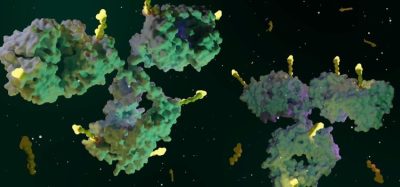Ankylosing spondylitis could be treated with immune therapy
Posted: 26 October 2018 | European Pharmaceutical Review | No comments yet
Results from a Phase III clinical trial indicate that patients suffering from ankylosing spondylitis could benefit from the biologic drug ixekizumab…

A Phase III clinical trial indicated that patients who have not benefited from standard therapy for ankylosing spondylitis (AS), a chronic inflammatory disease characterized by back pain and sacroiliac-joint damage, may have another treatment option in the biologic drug ixekizumab.
Approximately 30 to 40 percent of patients with AS do not achieve adequate disease control or symptom relief from tumor necrosis factor (TNF) inhibitors, the currently recommended treatment for AS. In addition, some patients may not be eligible to receive the recommended treatment due to contraindications. The cytokine IL-17 is thought to play a role in the development of AS, and IL-17 inhibitors are effective in some patients, but they have not been evaluated exclusively in patients who have not experienced symptom relief with TNF inhibitors.
To test the strategy in these patients, Professor Atul Deodhar, of Oregon Health & Science University in Portland, and his colleagues conducted a randomized, double-blind, placebo-controlled Phase III clinical trial of ixekizumab, a high-affinity monoclonal antibody that selectively targets IL-17A, in patients with AS who experienced a previous inadequate response or intolerance to TNF inhibitors.
For the trial, 316 patients were randomized 1:1:1 to placebo, ixekizumab every 2 weeks (IXEQ2W), and ixekizumab every 4 weeks (IXEQ4W), with an 80-mg or 160-mg starting dose.
At week 16, 30.6 percent and 25.4 percent of patients in the IXEQ2W and IXEQ4W groups, respectively, demonstrated significant improvements in the signs and symptoms of AS, compared with 12.5 percent of patients in the placebo group.
There were statistically significant differences reported as early as week 1 with ixekizumab treatment. Also, significant improvements in disease activity, function, quality of life, and spinal inflammation were observed with 16 weeks of ixekizumab treatment versus placebo. Treatment-related adverse events were more frequent with ixekizumab than with placebo. One death was reported, in the IXEQ2W group.
“Many people with this chronic, debilitating disease are still searching for an effective treatment. These positive results provide support for ixekizumab as a potential treatment option for patients with AS, including those who have had an inadequate response to treatment with TNF inhibitors, a difficult-to-treat population,” said Prof Deodhar.
The findings were presented at the American College of Rheumatology’s annual meeting in Chicago, and were published in the ACR journal, Arthritis & Rheumatology.
Related topics
Analytical techniques, Biologics, Clinical Development, Clinical Trials, Drug Development, Drug Safety, Research & Development (R&D)







